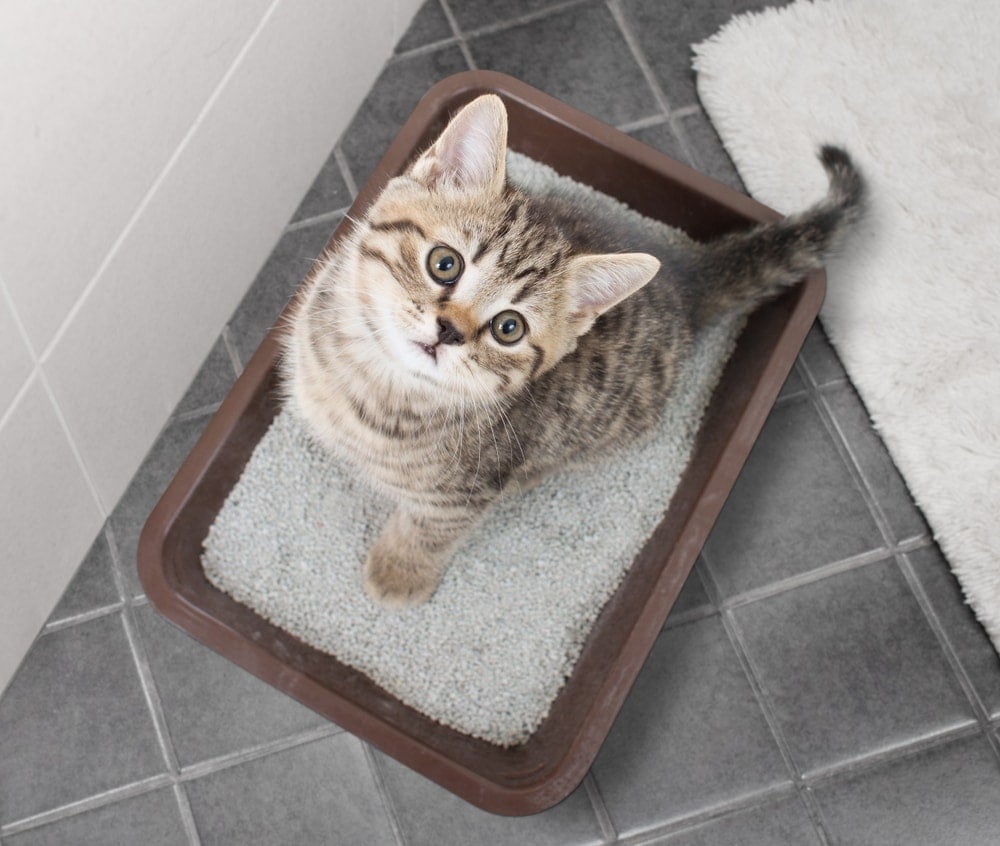10 Smells That Attract Cats: Vet Approved Scents Your Kitty Will Love

Updated on
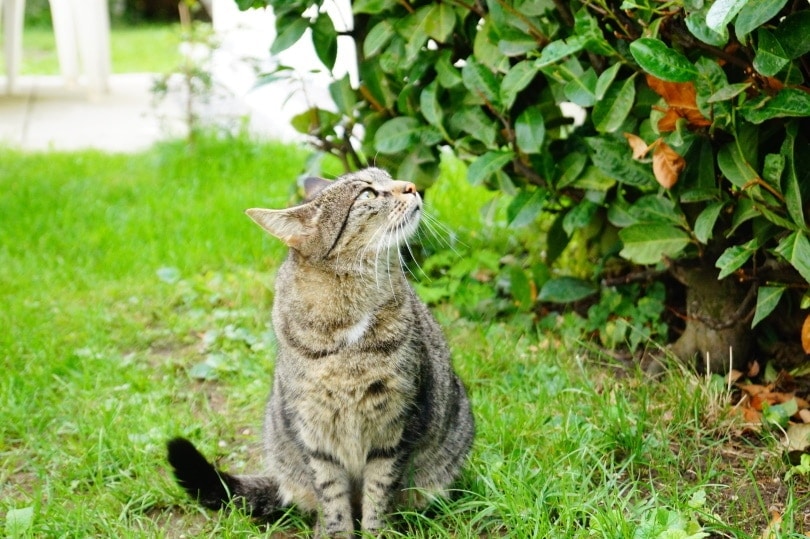
Cats’ noses contain odor-sensitive cells that are almost 40 times more powerful than our human noses.1 Cats use their superior sense of smell for mating, hunting, bonding, and exploring their surroundings. Their sense of smell also means they can detect smells they love more quickly than we can and will often seek them out. It’s natural to wonder, What smells do cats like? Read on to learn more about what scents attract your feline companion.
The 10 Smells That Attract Cats
1. Catnip
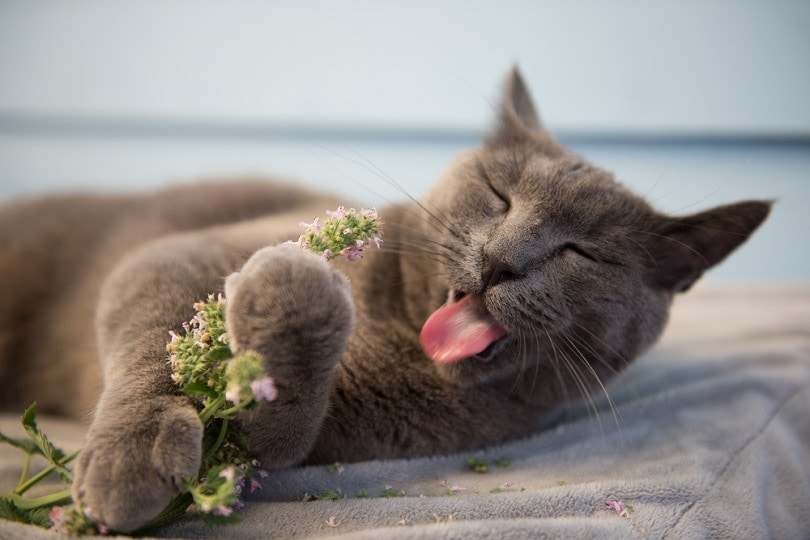
Walk down the cat toy aisle in the pet store and you’re likely to see plenty of toys filled with catnip. This aromatic herb contains a chemical in its oil called nepetalactone, which is what causes cats to experience a variety of reactions based on their genetics. They may experience euphoria, start chewing or licking, start rolling around like crazy, or may just become super relaxed. This intense reaction typically only lasts for about 10 minutes for cats. Catnip is also known by the names Nepeta cataria, field balm, and catwort. It’s one of the most common scents used to attract cats.
2. Tatarian Honeysuckle

This twiggy shrub has small white, pink, and red blossoms that seem to attract cats. It’s been reported that the scent is relaxing to cats if you’re looking for a calming influence over an outdoor cat. The wood and flowers are fine for the cat to play with, but when berries appear, make sure to keep them away from cats because they can be toxic to cats.
3. Silver Vine
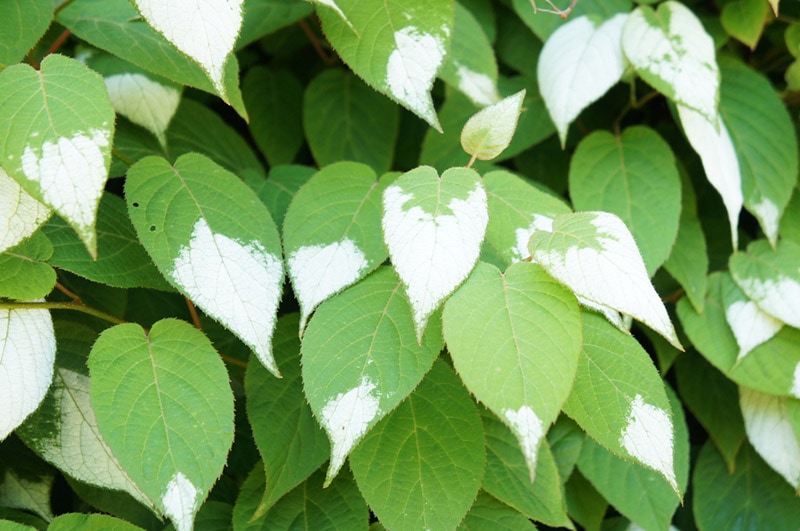
This climbing flowering plant is native to Japan and China and contains chemicals in the same family as nepetalactone (the chemical in catnip). In a 100-cat study, 80% of cats responded positively to silver vine. It should also be noted that 75% of cats in the study that didn’t normally respond to catnip, responded positively to silver vine.
4. Catmint
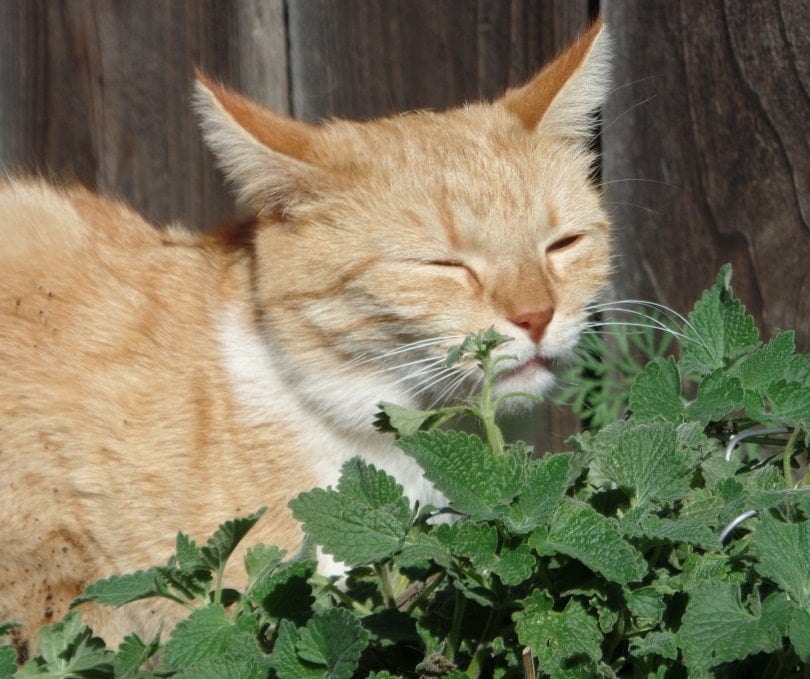
Often found in gardens, this easy-to-grow plant is a relative of catnip. Catmint has nepetalactone, like catnip, and cats may show a reaction to it if they discover it when wandering among the garden foliage. Not every cat will react to catmint, just like every cat does not respond to catnip, but if you’re trying to find an alternative to catnip, this plant is a good choice.
5. Valerian Root

A perennial plant with white and pink flowers, valerian root is another scent that many cats find irresistible. In the study of 100 cats, 47% of cats with exposure to valerian root had a mild to intense reaction to the plant during the study. If your cat doesn’t seem to respond to catnip, you might try ordering some valerian root to see if it’s a plant that excites your cat’s senses.
6. Olives

While there are no scientific studies as to why cats like olives, there are several theories. Olives have a similar compound to the compound found in catnip, nepetalactone, which is part of the allure for cats. A small olive now and then will likely not harm your cat, but you may not see any behavior change; it all depends on the cat. A note about olive oil: it’s not recommended that you give your cat more than a minimal amount of olive oil since it can cause stomach upset.
7. Cat Thyme
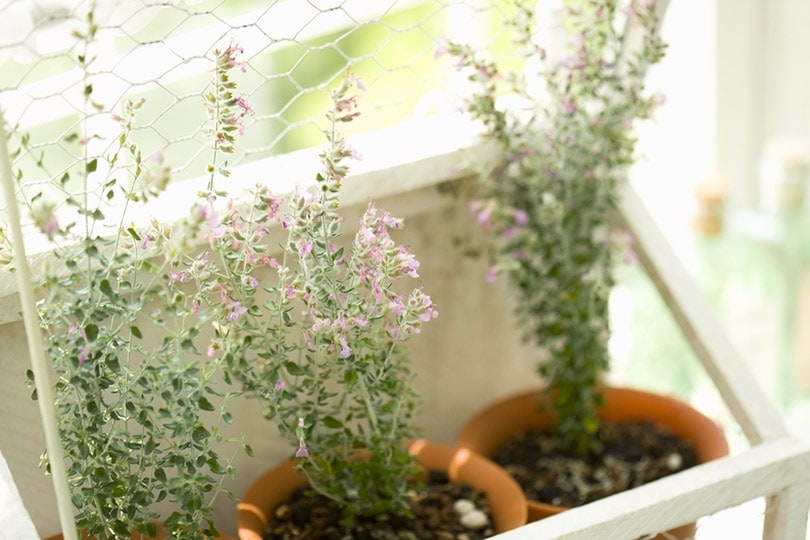
Some cats do not like catnip but go crazy for this flowering plant. It has a musty odor that cats seem to love, but fair warning, it isn’t the most pleasant of scents to the human nose. It typically has a soothing effect and leaves cats feeling content.
8. Basil

A popular houseplant that has a distinctive scent that cats like is basil. It tastes delicious on a pizza, but this houseplant is also an air purifier that cleans carbon monoxide, benzene, and formaldehyde from our air. Your cat may be drawn to your basil plant, but make sure it doesn’t eat too much to avoid stomach upset.
9. Flowers
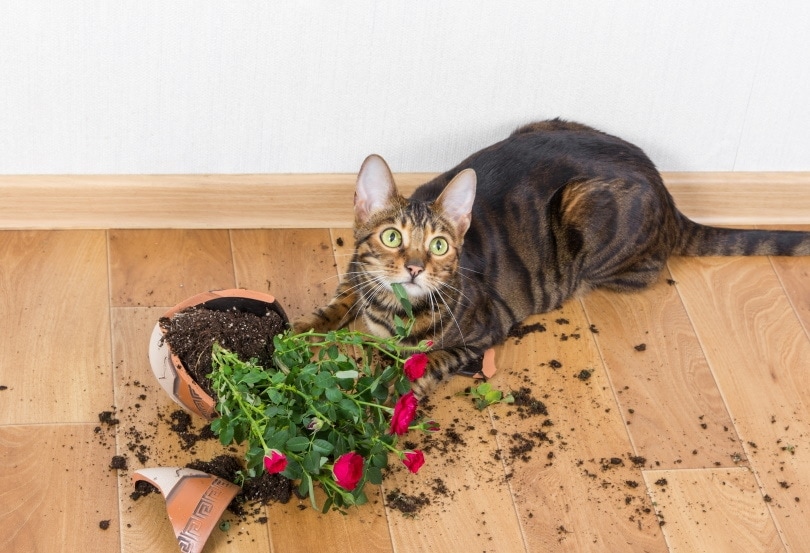
Many flowers are hit and miss for cats and you will need to observe how your cat responds to their scents. It’s very important that you only bring home flowers that are considered safe for your cat. PetMD recommends the following: Gerber daisies, orchids, roses, sunflowers, freesia, Liatris, and more. Always watch your cat around flowers to make sure they are not ingesting anything that may disrupt their digestive system.
10. Fruit
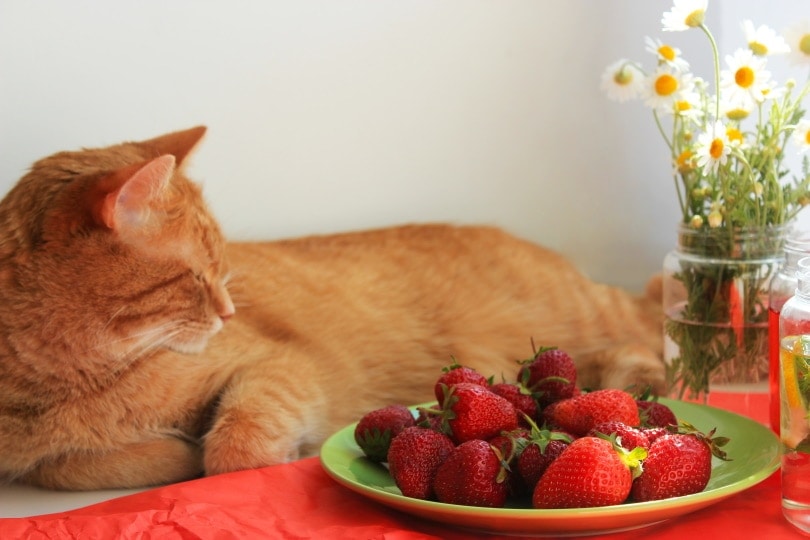
Just like with flowers, some fruit may smell appealing to your cat while other fruits will make them turn up their noses. Peaches, watermelon, and strawberry all appear to be scents that attract felines. Many cats will avoid the sharp scents of citrus. If they show interest in a particular fruit, check with your vet to see if it’s okay to let your cat try them out.
Final Thoughts
Cats have superior olfactory senses and are attracted by a variety of scents. They enjoy a variety of plants: catnip, silver vine, valerian root, tatarian honeysuckle, basil, cat thyme, and catmint. The scent of olives also seems to be a draw for many cats because they contain a compound similar to catnip’s nepetalactone. Some cats also enjoy the smell of flowers and fruit but be careful with these as some may be toxic for cats. It may take time to figure out what scents your cat likes, but it will be worth it when you see the pleasure your cat gets from enjoying the scents around them.
Related Reads:
- Why Do Cats Like Catnip? Feline Facts & FAQs
- What Is a Scent Soaker for Cats? Vet Reviewed Facts & FAQ
Featured Image Credit: Piqsels


